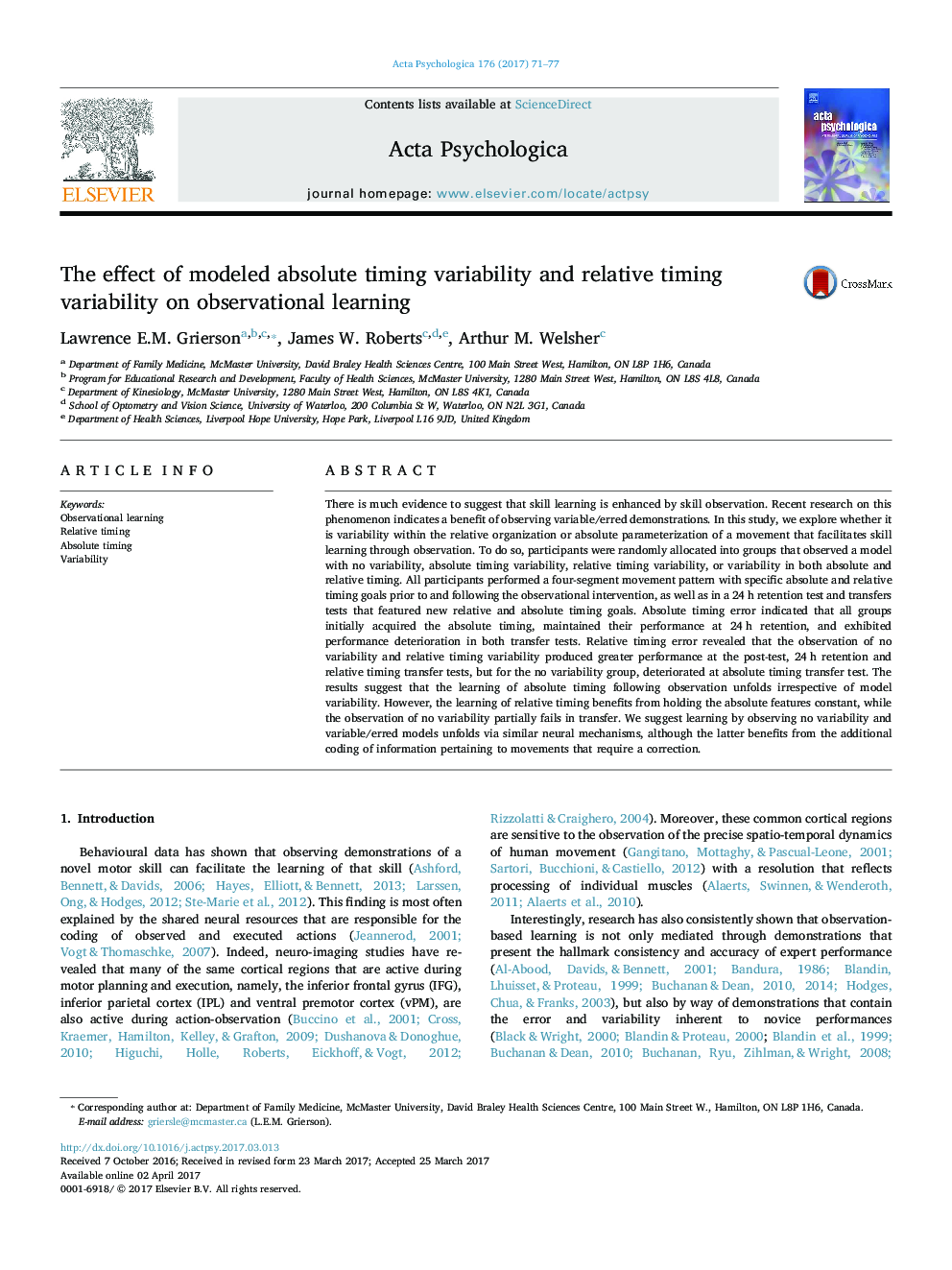| کد مقاله | کد نشریه | سال انتشار | مقاله انگلیسی | نسخه تمام متن |
|---|---|---|---|---|
| 5040209 | 1473582 | 2017 | 7 صفحه PDF | دانلود رایگان |
- Observational learning of absolute timing unfolds irrespective of model variability.
- Relative timing learning benefits from consistently modeled absolute feature.
- Relative timing learned from un-variable models partially fails in transfer.
There is much evidence to suggest that skill learning is enhanced by skill observation. Recent research on this phenomenon indicates a benefit of observing variable/erred demonstrations. In this study, we explore whether it is variability within the relative organization or absolute parameterization of a movement that facilitates skill learning through observation. To do so, participants were randomly allocated into groups that observed a model with no variability, absolute timing variability, relative timing variability, or variability in both absolute and relative timing. All participants performed a four-segment movement pattern with specific absolute and relative timing goals prior to and following the observational intervention, as well as in a 24Â h retention test and transfers tests that featured new relative and absolute timing goals. Absolute timing error indicated that all groups initially acquired the absolute timing, maintained their performance at 24Â h retention, and exhibited performance deterioration in both transfer tests. Relative timing error revealed that the observation of no variability and relative timing variability produced greater performance at the post-test, 24Â h retention and relative timing transfer tests, but for the no variability group, deteriorated at absolute timing transfer test. The results suggest that the learning of absolute timing following observation unfolds irrespective of model variability. However, the learning of relative timing benefits from holding the absolute features constant, while the observation of no variability partially fails in transfer. We suggest learning by observing no variability and variable/erred models unfolds via similar neural mechanisms, although the latter benefits from the additional coding of information pertaining to movements that require a correction.
Journal: Acta Psychologica - Volume 176, May 2017, Pages 71-77
